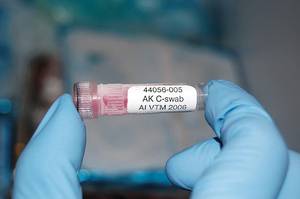Case H5N1: Research has been published entirely
2012/06/01 Elhuyar Zientzia Iturria: Elhuyar aldizkaria

Finally, in the journal Nature on May 3, the first of the experiments carried out last year with the mutation H5N1 was published and the second of Science will be published shortly. With the publication of the works, the debate of the months could be concluded.
It all began in December 2011. The Government of the United States -- recommended by the Biosafety Advisory Council -- requested on December 30 that the results of two investigations with the H5N1 flu virus not be published entirely. In particular, and in the name of security, he asked the authors and journals Science and Nature to publish the results of their research that withdraw the details of the methodology of the articles and that they do not provide sufficient information for the results to be repeated, so that they were not in the hands of potential bioterrorists.
In these investigations, the two groups -- one from the Erasmus Medical Research Center in Rotterdam and another from the University of Wisconsin-Madison in the United States -- have created variants of avian influenza H5N1 in the laboratory that have been able to contaminate the ferrets through the airways. Ferrets are the best example to carry out human flu studies that are spread through the airways, so the results are worrying: variations have acquired the capacity through very few mutations and indicate that the H5N1 virus of birds can produce a pandemic of flu in humans greater than expected.
The Advisory Council on Biosafety recommended that work not be published in its entirety, considering that access to all details of the study was detrimental to biosafety. According to them, those who had to know it would have confidential knowledge of the details, but, moreover, the risks arising from the disclosure of the information were greater than the benefits.
The demand was considered a censorship and an attack on the freedom to investigate and share results, which led to an intense debate. After the debate, the authors of the study and other researchers submitted their research to a 60-day voluntary moratorium in January 2012, as expressed in a joint letter. He also requested the World Health Organization (WHO) to organize a meeting to address the issue and did so. The congress was held in February and against the Advisory Council on Biosafety WHO advocated the full publication of the investigations. He concluded that "the delay in the publication of the investigations and its complete publication would favor more public health than the urgent and partial publication."
The WHO statement provoked a tipping in the debate and finally the US Advisory Council on Biosafety added to its recommendation. On March 28, the extraordinary meeting of the commission was held in Washington, surrounded by strict security measures and confidentiality, and the day after the meeting, it was reported that "before the additional information presented by the investigators," they decided to cancel the request three months in advance.

Gai honi buruzko eduki gehiago
Elhuyarrek garatutako teknologia






